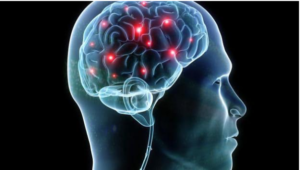
In the last decade, we have started seeing foods from the lens of a calorie count. Still, very few people consume anything in their staple eating by keeping in mind their mental health and wellbeing.
The growing body of research suggests that there are many foods that play a crucial role in maintaining our mental wellbeing. Many of them also cut down the possibility of mental conditions that are associated with aging (Alzheimer, Dementia). In short, one should also factor in the mental health effects while adding a certain food to the diet.
In this article, we are going to discuss an interesting food category that entails various benefits for mental health and development. On top of that, these foods are also considered healthy from a conventional standpoint i.e. they are packed with healthy nutrients and contain a moderate number of calories.
We are talking about seafood, which is now an essential part of many healthy and weight-losing diet regimens. Here, we will keep the focus of the discussion on the mental health effects of seafood consumption.
Seafood is Memory Booster

Our memory diminishes as we grow older, as a decline in our electrophysiological activity dissipates; meaning, the electrical activity of our neurons slows down. Different studies have proved that manganese, a trace mineral, plays a central role in keeping up neuronal activity. Manganese is a naturally occurring mineral that can’t be formed in an organic reaction, which means our body can’t produce it.
So, we have to get the required manganese amount through dietary sources. Seafood, of all types, is rich in manganese. By making seafood a part of your daily diet, you can prevent a potential manganese deficiency. It is important to mention that manganese deficiency doesn’t happen with any telltale symptoms.
Salmon is rich in many other minerals; such as Fatty Acids, proteins, B Vitamins, Potassium, Selenium, Antioxidant Astaxanthin, and studies have shown it may reduce the risk of heart disease.
Mussels are good seafood that contains manganese. A few others are 83% DV in 20 small clams, 45% DV in 3 oz of oysters, and 19% DV in 3 oz of cooked crayfish. (Other sources of manganese are found in quinoa, pecans, oatmeal, and whole-wheat pasta.) By making seafood more frequent in your diet, you don’t have to worry about manganese deficiency and subsequent memory loss.
A standard blood test by your physician can determine your manganese level. These tests are usually given during your yearly physical, although, the doctor may require a special test if he/she determines that you might be missing the standard manganese requirement. This goes for all vitamins and minerals that would be tested.
Seafood Is Good for Mood
 Many people underestimate the significance of foods that uplift the mood. A good demeanor is not just a fleeting mental phenomenon. By keeping your mood good, you can mitigate the effects of chronic stress. Mood also helps alleviate the symptoms of depression and anxiety. In short, how your mood fares affect your mental health and consequently dictates the quality of your life.
Many people underestimate the significance of foods that uplift the mood. A good demeanor is not just a fleeting mental phenomenon. By keeping your mood good, you can mitigate the effects of chronic stress. Mood also helps alleviate the symptoms of depression and anxiety. In short, how your mood fares affect your mental health and consequently dictates the quality of your life.
So, mood-boosting foods are important, and here’s some good news: fish is one such dietary option that uplifts our moods. Seafood is rich in tryptophan—one of the eight essential amino acids. This amino acid is special because it is the metabolic precursor of serotonin, commonly known as the happy hormone. Tuna is a good source of tryptophan as well as salmon, trout, and Mackerel.
Tryptophan helps maintain serotonin
With seafood being a part of your diet, you help maintain the serotonin levels in the brain.
Seafood and Neurological Development
The neurological development of a fetus is really crucial for many reasons. To begin with, its abnormalities can affect the growth of other parts of the body. Secondly, insufficient neurological development can turn into some permanent brain issues. In order to ensure healthy neurological development in unborn children, it’s important that pregnant mothers don’t face the deficiency of nutrition that goes into the development of the brain.
The inclusion of seafood in the daily diet of pregnant mothers can facilitate the healthy neurological growth of the fetus. Some scientific studies have substantiated the beneficial impact of seafood consumption among mothers on the brain health of the newborn.
Seafood Prevents Mental Fatigue

Zinc is another trace mineral that is considered central to mental health. It maintains the activity of the cognitive function of the brain by ensuring non-stop synaptic transmission. Nearly every seafood item is rich in zinc. By making seafood a regular part of your daily diet, you can make sure zinc levels don’t deplete within the body.
Zinc helps ensure non-stop synaptic transmission
Zinc is also believed to have remedial effects against depression. For that matter, it is a part of many antidepressant medications. Nevertheless, the studies regarding the antidepressant action of zinc are still inconclusive.
Seafood Reduces the Risk of Alzheimer’s
 For many years, Alzheimer’s was considered an inevitable outcome of aging. However, scientists have put forward some theories and experimental results showing that Alzheimer’s is not always the side effect of aging.
For many years, Alzheimer’s was considered an inevitable outcome of aging. However, scientists have put forward some theories and experimental results showing that Alzheimer’s is not always the side effect of aging.
In one similar study published in the American Medical Association (JAMA), it has been established that making seafood a regular part of your diet can reduce the risk of Alzheimer’s by half in the later stages of life. It is believed that the accumulative mental health benefits of eating fish actually erect a barrier against Alzheimer’s.
Healthy Seafood to Eat
There are some options that you can mull over to add to your daily diet to get all the mental health benefits discussed above. These dietary fish options are also healthy with their calorie count and nutritional composition.
Shrimp

Shrimp is a great food source for iodine, a mineral that many people are deficient in. Iodine is a necessary ingredient for proper thyroid function and brain health.
Shrimp is also a great source of omega-6 and omega-3 fatty acids, which are known to be helpful for people with anxiety and mood swings, such as bipolar disorder and contains a number of other helpful nutrients for the body and brain.
Freshwater Coho Salmon
Freshwater Salmon is free of any harmful mercury traces. It is packed with healthy omega-3 fatty acids and trace minerals essential for mental wellbeing. Moreover, there are many delicious recipes that can be prepared with salmon. If you can’t easily find freshwater Salmon, get the canned one.
Sardines
Sardines are inexpensive fish packed with omega-3 fatty acids and vitamin D. This is another seafood option that can be added to the diet for its benefits for mental health.
Atlantic Mackerel
This dietary fish is good for many reasons. It contains all the ingredients to improve mental health. In addition, it is rich in proteins. So, you can also make it part of a weight-loss diet plan.
Eating more seafood is good for health in all aspects. They are packed with good fats and proteins. They don’t contain calories in excess. Also, they are easily available. To sum it up, seafood is a perfect dietary option for both physical and mental wellbeing.
